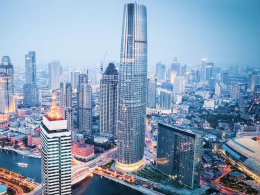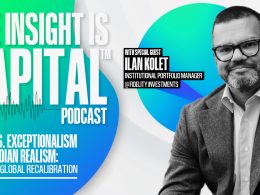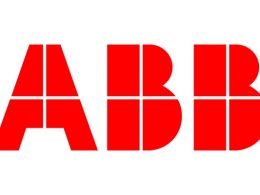Maria Bartiromo interviews George Soros about the IMFs plan to make available as much as $750-billion in SDRs (Special Drawing Rights) to aid the poorest of developing countries.
Soros also discusses which places in the world are doing better than the rest, and the interview ends on the subject of China and its overtures about an alternative reserve currency. Watch it here or read the full transcript below.
Maria Bartiromo: You've seen the communiques, you've been in some of these meetings. What's your reaction, what did you think of the communiques?
George Soros: They managed to get more than I expected. They really pulled a few rabbits out of the hat and I think it was a very impressive communique. And for Gordon Brown, it really was his finest hour.
MB: Why?
GS: Because he really did see the need for addressing this global problem, because you have the less developed world facing potential collapse as the banks don't roll over their loans. So something had to be done and he did manage to bring it together. I would say that this is probably the first time they are actually ahead of the curve.
MB: Let's talk about the money, for the IMF that could rise to $750-billion; is that enough and more importantly, Who should get the money?
GS: Well there, they managed to put together a bigger package than anybody expected, and very important is the issue of special drawing rights to $250-billion. That is effectively creating internationally new money, and, that will help to allow the countries that are not able to print their own money the way that we can, actually to stimulate their economies. And I think the way for the rich countries to transfer their allocations to the most needy countries can be worked out.
MB: So are you saying that the efforts as far as the IMF and the communique overall, has completely changed your mind? I mean a week and a half ago you were out very vocal, saying, look, the IMF is going to have to basically bailout the UK. Here we are sitting in one of the greatest cities in the world.
GS: No, that was a misleading headline given to an interview where I said it is most unlikely that England would need to go to the IMF. However the fact that its created such an outcry shows what a stigma there is attached about having to go to the IMF.
MB: A lot of people, when you were talking about the UK and the need for help, and really a bailout. People are saying, well wait a second, you know George Soros years ago, shorted the pound, and made money on this, and maybe he's playing his book. In fact, Lord Mandelson, he basically said that to me in so many words earlier in the week. Are you shorting the pound right now?
GS: No, I'm not. First of all, I'm withdrawn from actually running the fund. I did it last year, we came through it, and I have handed it back to the people who can do it. So, I'm out of the markets as I was before, I came out of retirement and I'm back in retirement.
MB: Until you feel, I don't know if you're going to able to stay in retirement frankly, but let me ask you about the operations in terms of hedge funds, oversight, because this is another thing, the group said, they want more regulation of hedge funds. Did you agree with what they said, and where they're going in terms of more oversight?
GS: Well I think you absolutely need more regulation, but you really need to have better regulation, and, yes, we have allowed the markets a free hand, and of course that was very unsound. But we don't want to go overboard, now, with regulation because the fact that markets are imperfect, because they don't anticipate the future correctly. Regulators are just as imperfect.
MB: Can you characterize the situation for us in Eastern Europe right now?
GS: What happened when Western Europe and America guaranteed the banking system, the other countries in Eastern Europe coudln't provide similarly convincing guarantees, and the banks in the West started pulling their capital out of there, and the national regulators also encouraged the banks to lend at home, and not abroad, and that created a crisis for Eastern Europe.
MB: What are your thoughts on the developments surrounding mark-to-market? FASB coming out and saying that they do want to make it easier, a little more lax in terms of the regulation for mark-to-market? What are your thoughts on that?
GS: There I remain very critical, because I think the much more effective would have been to recapitalize the banks. And because of the history of the way the TARP money was spent, it was really messy and very badly done. And because of that there's increasing reluctance by Congress to make new money available, and yet it would be much much better, to create clean banks. Banks that are able to lend. I think we missed the boat on that. And that means that we will be spending a long time allowing the banks to dig themselves out of the hole, and while they are doing that they will not be providing sufficient credit to carry on business. They'll be charging a lot more, and generally it will weigh on the economy for a period of time.
MB: I know you saw the story about some hedge funds saying, look, we're going to leave London; the tax situation is not favourable, we don't like the business conditions here. What do you think about that?
GS: Where are they going to go? Another planet? I mean, you know, there is no alternative. Now with the tax havens being brought under control, I think hedge funds will have to get used to being regulated.
MB: Is there anywhere in the world doing well right now? I mean you where you would say, this is safety, this is where I want to be?
GS: I think that actually China stands to emerge faster and better than most other countries. I think actually, Brazil, that has been hurt by this financial crisis after Lehman, is also basically quite well situated. I think India, because it is less tied in with the rest of the world. So, I think that the global economy will probably start growing next year.
MB: George, the Chinese have said that there should be another option away from the US dollar as the reserve currency. Do you agree with that?
GS: In the long run, that may be appropriate. Its not in the cards now; the special drawing rights that are now being issued, those are not currency, those are bookkeeping entries at the IMF. You have to convert them into a convertible currency before you can use them. I think probably the Chinese Yuan will probably be made into one of the currencies into which you can convert, which is appropriate, because China is now very important. We are no where near the SDRs becoming an international currency.
MB: Long term what would the currency be? Would it be the Chinese Yuan?
GS: No, I think the dollar is the dominant currency, for a while to come, but in the long run it would be, it may be important that the US should be subject to the same discipline as the rest of the world.











